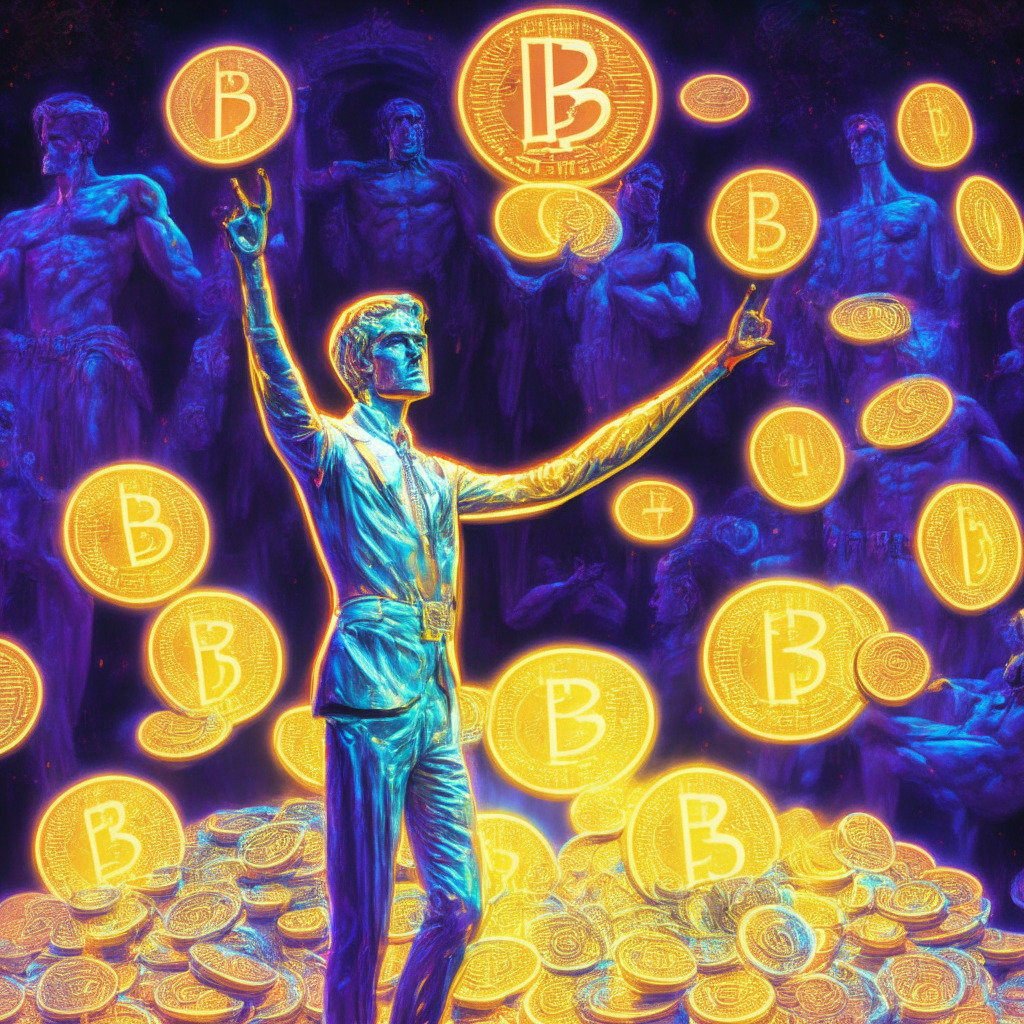Democratic presidential candidate Robert F. Kennedy Jr. has recently divulged the purchase of two Bitcoins (BTC) for each of his seven children. The spark for this action includes responses to criticisms for advocating a potentially unstable asset without having any personal stake in it.
Kennedy’s decision to “put his money where his mouth is” came about in the aftermath of being given a hefty check after a Bitcoin conference. Following this situation, he bought a total of 14 BTC for his seven offspring. These tokens, purchased when Bitcoin price lingered around $27,000, are now valued almost at $414,000, given the current value of approximately $29,500 per Bitcoin.
Being known for his endorsement of Bitcoin at the Miami Bitcoin Conference held in May this year, Kennedy views the cryptocurrency as a means of defending public rights against government and corporate invasion. He firmly believes in the inviolability of the people’s right to hold and use Bitcoin, stressing its position as a shield against the totalitarianism and exploitation of money supply.
However, should we be enthused by Kennedy’s actions or approach it with a sense of wariness? After all, while Bitcoin’s advantages of more transparent, democratic government institutions cannot be disputed, one should not ignore the possible implications.
Concerns of potential clash of interests arising from Kennedy’s public promotion of Bitcoin during his campaign while his family owned the commodity cannot be disregarded. Virginia Canter, chief ethics counsel for Citizens for Responsibility and Ethics, echoed these sentiments, grounding the fact that such actions might be construed as biased.
While it is commendable that Kennedy is practising what he preaches and has committed to advocating Bitcoin as an inviolable right of the people, there is room for questioning his actions. Surely, does his family’s possession of the cryptocurrency not influence his public endorsement of it? Whether this casts a cloud over his intentions, or simply acts as proof of his belief in the asset is left open for interpretation.
Despite the potential misgivings, Kennedy continued to publicly stand by Bitcoin. In a tweet made in June, he reiterated his endorsement of Bitcoin as not only an anti-totalitarian asset but also a beacon pointing towards more transparent, democratic government institutions. It will be interesting to see how this chapter unravels and whether it will leave a global impression on the future of blockchain and cryptocurrencies.
Source: Cryptonews




